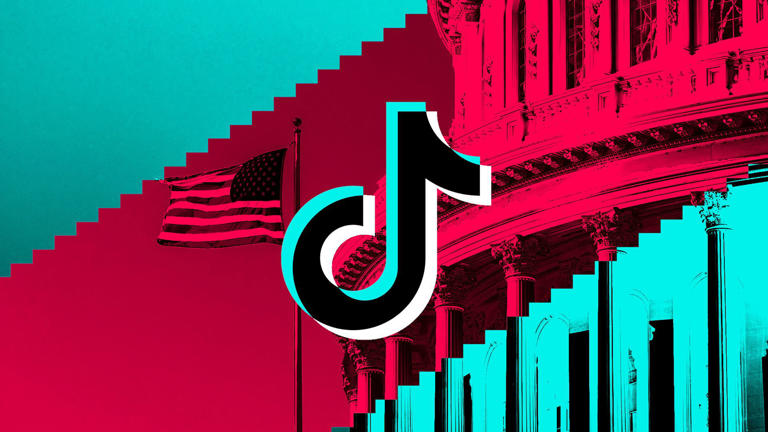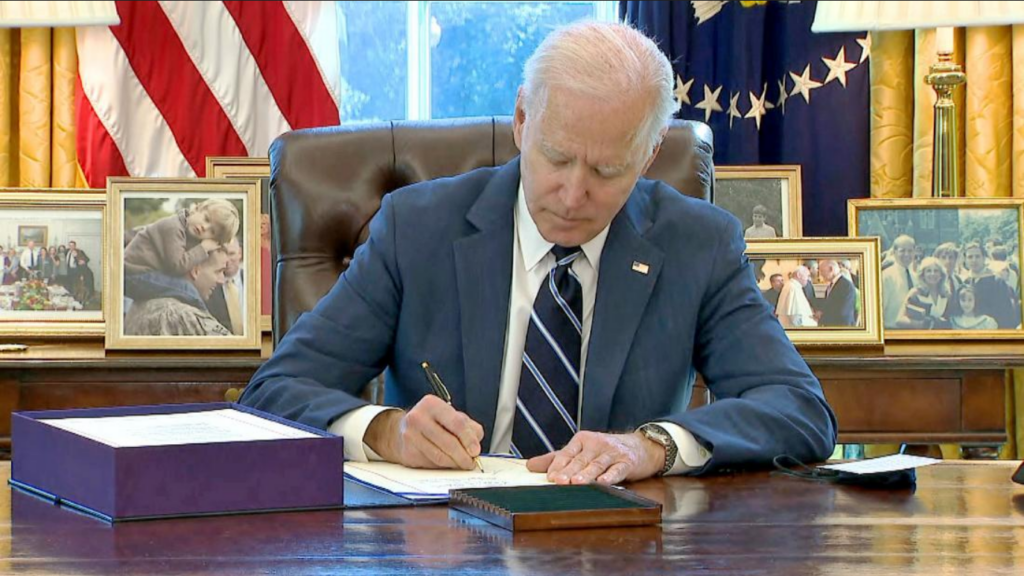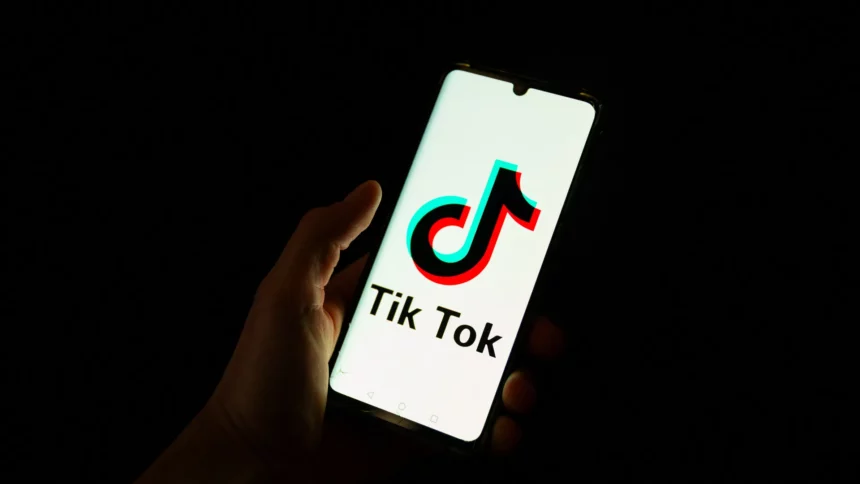President Joe Biden signed a bill Wednesday that will force TikTok’s Chinese parent company to divest from its U.S. operations or face a nationwide ban. Why it matters: The move potentially sets up a protracted legal fight over the fate of the popular social media app, as TikTok has vowed not to go down without a fight.
What’s the concern about TikTok?
The bill signed into law Wednesday has been a long time coming after the Biden administration warned last year that TikTok could face a ban if its parent company, ByteDance, didn’t sell its stake in the U.S. version of the app.
TikTok’s critics have long argued the app could put U.S. customer data at risk because Chinese law requires China’s companies to share information with the government.
TikTok has maintained that it operates independently and protects U.S. data through an alliance with Oracle, which firewalls the data from overseas access.

Flashback: The push to ban TikTok was initially spearheaded by former President Trump, though he more recently has appeared to reverse course on the issue.
What does the new law say?
While the new law won’t make TikTok instantly disappear, it gives ByteDance up to a year to find an approved buyer for TikTok. Specifically, the law gives ByteDance nine months to arrange a sale, with the option that President Biden could extend the deadline by 90 days if sufficient progress toward a sale has been made. If it fails to do so, TikTok will be banned from U.S. app stores.
What could TikTok do next?
The Chinese government has signalled it intends to block any forced sale of TikTok by ByteDance, which would set the stage for the app to be banned in the U.S., the Wall Street Journal reported. TikTok CEO Shou Chew vowed Wednesday that the social media platform will challenge the new law on First Amendment grounds. TikTok could also wait out the results of November’s presidential election in the hopes that whichever party takes control has a change of heart on the matter.

If TikTok is sold to a new U.S. owner, establishing it as an independent company with its own stock, ByteDance could still dilute the power of the deal by not including TikTok’s algorithm in the sale. Yet a version of U.S. TikTok without the algorithm that has powered its popularity would make the platform radically different from what it is today.
What could this mean for the wider market?
The forced sale or ban of TikTok could set a new precedent that disrupts the U.S. media ecosystem. It could prompt other countries to force American firms to sell their local operations or to transfer them to a foreign company. The new law’s broad language could also have wider implications for ByteDance’s other apps.








